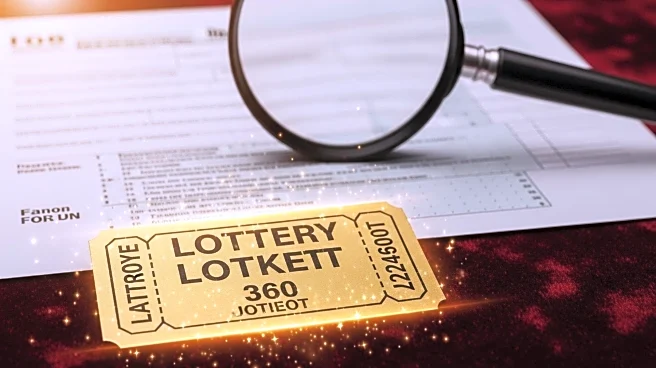What's Happening?
The Powerball jackpot has surged to $1 billion, marking the sixth-largest prize in the game's history. This follows 39 consecutive drawings without a winner. The jackpot can be claimed by matching all six numbers, including the red Powerball, with odds of 1 in 292,201,338. Winners have the option to receive the prize as annual payments over 30 years or a lump-sum cash payout worth less than half the advertised amount. The IRS immediately withholds 24% of the winnings, and the total tax rate could reach 37% due to the federal tax bracket. Additionally, state taxes vary, with some states not taxing lottery winnings at all.
Why It's Important?
The $1 billion Powerball jackpot is a significant event, drawing widespread attention and participation across the U.S. It highlights the allure and impact of large lottery prizes on individuals and state economies. The tax implications are crucial for winners, affecting the net amount received and financial planning. States that do not tax lottery winnings may see increased ticket sales, influencing local economies. The jackpot also underscores the role of lotteries in generating revenue for state programs and initiatives.
What's Next?
The drawing will take place at 10:59 p.m. ET, with anticipation building among participants. If a winner emerges, they will face decisions regarding payout options and tax planning. The outcome could lead to increased interest in future lotteries and discussions on tax policies related to gambling winnings. States may evaluate their participation and tax structures to optimize revenue and attract more players.











